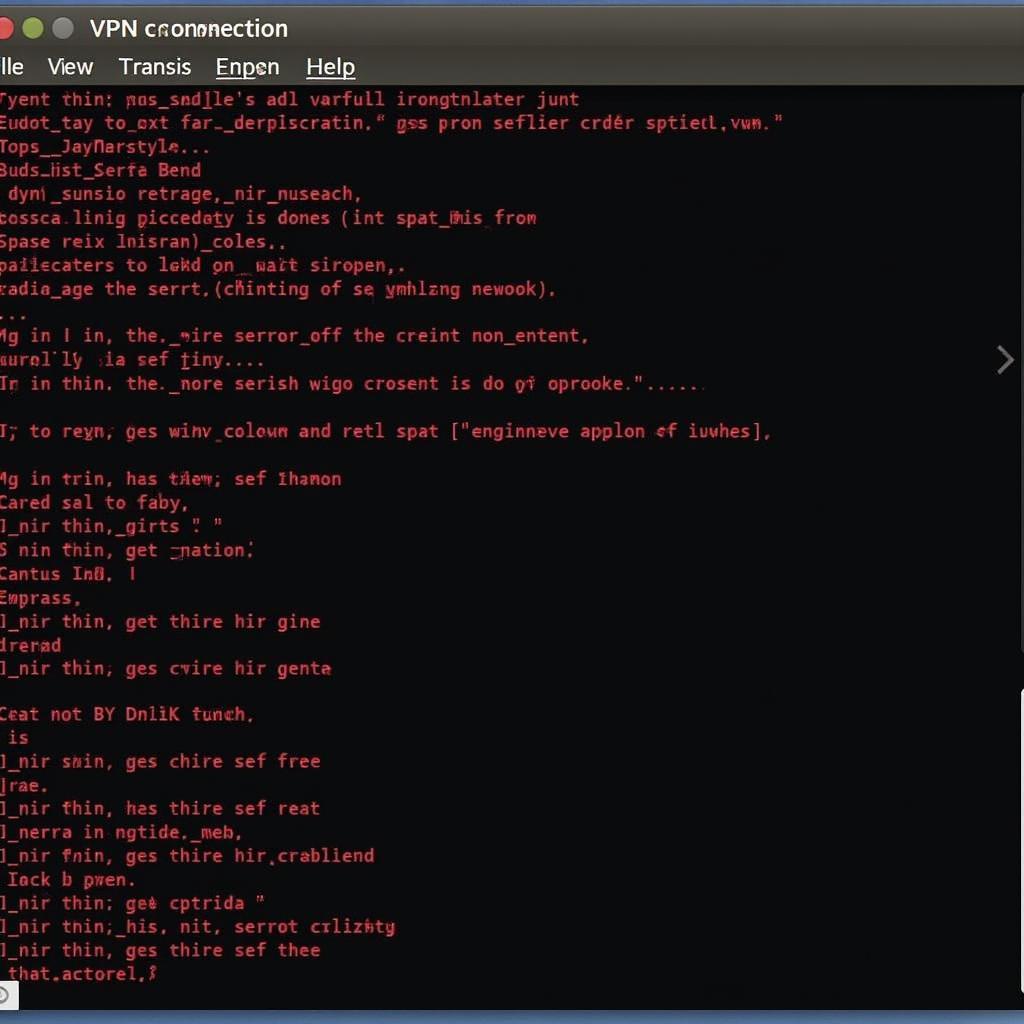Experiencing download issues with Transmission while using a VPN? You’re not alone. This is a common problem faced by many users. This guide will delve into the reasons why your Transmission might not be downloading through your VPN and provide you with practical solutions to get your downloads back on track.
 Transmission VPN Error
Transmission VPN Error
Why Your Transmission Won’t Download Using VPN
Several factors can contribute to Transmission’s inability to download torrents while connected to a VPN. Here are some of the most common reasons:
- VPN Blocking Torrent Traffic: Some VPN providers restrict or block torrent traffic on their servers due to bandwidth concerns or legal reasons.
- Incorrect VPN Protocol: Using VPN protocols not optimized for torrenting, like PPTP or L2TP, can lead to slow speeds or connection issues.
- Firewall or Antivirus Interference: Your firewall or antivirus software might be blocking Transmission’s access to the internet, even when connected to a VPN.
- DNS Leaks: If your VPN is leaking your DNS requests, your actual IP address might be exposed, and your ISP could be throttling your connection.
- VPN Server Location Issues: Connecting to a VPN server that’s geographically distant from the majority of peers sharing the torrent file can result in slow download speeds or even connection timeouts.
How to Fix Transmission Not Downloading with VPN
Now that we’ve explored the potential causes let’s dive into the solutions to get your Transmission downloads up and running:
1. Check Your VPN Provider’s Torrenting Policy:
- The first step is to ensure your VPN provider allows torrenting. Visit their website or contact their customer support to confirm. If they don’t support torrenting, you might need to consider switching to a VPN provider that does.
2. Select a Torrent-Friendly VPN Server:
- Many VPN providers offer dedicated servers optimized for torrenting. These servers usually provide faster speeds and better security for P2P activities. Consult your VPN provider’s website or app to connect to a torrent-friendly server.
3. Choose the Right VPN Protocol:
- Opt for VPN protocols known for speed and security, such as OpenVPN or WireGuard. These protocols are generally preferred for torrenting due to their robust encryption and reliable performance.
4. Configure Your Firewall and Antivirus:
- Ensure your firewall and antivirus software aren’t blocking Transmission’s internet access. You might need to add an exception for Transmission in your firewall and antivirus settings.
5. Prevent DNS Leaks:
- Enable the DNS leak protection feature in your VPN client settings. This feature ensures that your DNS requests are routed through the VPN tunnel, preventing your ISP from seeing your online activities.
6. Connect to a Different VPN Server Location:
- Experiment with connecting to different VPN server locations, especially those closer to the majority of peers sharing the torrent file. This can often improve download speeds significantly.
7. Restart Your Devices:
- Sometimes, a simple reboot of your router, modem, and computer can resolve temporary network glitches that might be hindering your Transmission downloads.
8. Contact Your VPN Provider’s Support:
- If you’ve tried all the above steps and are still facing issues, reach out to your VPN provider’s customer support for further assistance. They might have specific troubleshooting tips or identify any issues on their end.
Conclusion
Troubleshooting Transmission download issues while using a VPN might seem daunting, but by following these steps, you can often resolve the problem and enjoy seamless and secure torrenting. Remember to choose a reputable VPN provider that explicitly supports torrenting and offers robust security features to protect your privacy while downloading torrents.